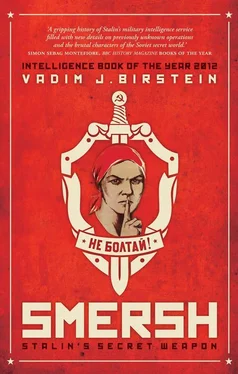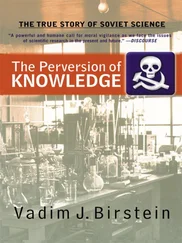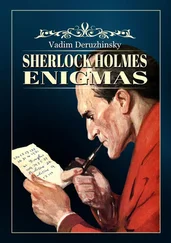Blinov, former head of the Moscow MGB Branch (which was a very high position in the MGB hierarchy), became responsible for the Investigation Directorate for Especially Important Cases, or OVD. Very soon the OVD was involved in the investigation of all the main political cases of the late 1940s. Finally, on September 7, 1946, Lt. General Pyotr Fedotov, the new head of the 1st MGB Main Directorate (foreign intelligence) and former head of NKGB’s interior counterintelligence, was also appointed Abakumov’s deputy.
With the appointment of Abakumov as MGB Minister, GUKR SMERSH was absorbed into the new MGB structure. Most of it became the 3rd MGB Main Directorate (3rd GU), military counterintelligence, under Selivanovsky’s command. 19The function of the 3rd GU returned to the traditional surveillance of Soviet military forces. It consisted of three directorates controlling the Soviet Army (on February 25, 1946 the Red Army was renamed the Soviet Army), Marine Fleet, and Air Force, correspondingly. The SMERSH directorates of the Soviet troops in Germany, Austria/Hungary, Romania/Bulgaria, and Poland were renamed military counterintelligence directorates of these troops and continued their sinister activity against the civilian populations in those countries, as well as against military authorities and representatives of the secret services of the former Allies in those countries.
During the reorganization, the 6th GUKR SMERSH Department was merged with the former NKGB OVD Department, and Aleksandr Leonov, former head the 6th SMERSH Department, was appointed head of the new MGB OVD Directorate. Two of Leonov’s deputies, Mikhail Likhachev and Vladimir Komarov—Abakumov’s secretary from 1941 to 1946—held on to their posts in the MGB OVD Directorate. During the next five years, all three played a key role in all the major political cases of the time.
Sergei Kartashov’s 2nd GUKR SMERSH Department, which investigated many important foreign prisoners, became the 4th Department of the 3rd Main MGB Directorate. It had a number of functions: (1) Counterintelligence in the zones of Germany occupied by the former allies; (2) Counterintelligence in Poland, Romania, Bulgaria, Austria, Hungary, Finland, Manchuria, and Korea against the enemy agents who had possibly penetrated Soviet offices and occupation troops in those countries; (3) Guidance of the operational activity of the Inspectorates attached to the Allied Control Commissions; (4) Work with and investigation of foreign POWs important in terms of military counterintelligence; (5) Continuation of vetting the Soviet POWs who had been in German captivity in various countries. 20The 4th Department existed until September 1948, when most of its prisoners captured from 1944–45 had been convicted, and then it was merged with the OVD.
In August 1949, former head of the 4th Department Kartashov was sent to Hungary as Senior MGB Adviser to the State Security Directorate of the Hungarian MVD, where he stayed until May 1950. In March 1950, many of Kartashov’s former investigators were transferred to the Investigation Department of the 2nd MGB Main Directorate (interior counterintelligence), where they finished cases of foreigners arrested by SMERSH during and just after the war. Interestingly, although Kartashov was not arrested along with Abakumov and his colleagues in 1951 or persecuted later, he had never been promoted to the rank of general like the other former GUKR SMERSH department heads. Kartashov continued to serve in the KGB until 1967, becoming a consultant of the head of the Foreign Intelligence (1st Main Directorate), but he remained only a colonel—the rank he was promoted to in 1943, during the creation of SMERSH.
In November 1946, Abakumov created his own MGB OSO (Special Board), and until 1953, it sentenced most of the prisoners arrested by the MGB within the country and abroad. 21With the acquisition of the OSO, the MGB became a closed institution: it arrested people on political charges, investigated cases, tried the arrestees, and put the most important convicts into its own special prisons: Vladimir, Verkhne-Uralsk, and Aleksandrovsk.
After coming back to Moscow in May 1946, both Pavel Grishaev and Boris Solovov, watchdogs in Nuremberg, had fast-track careers. Pavel Grishaev participated in the investigation of the most important OVD cases of Andrei Vlasov (1946), the Alliluevs (relatives of Stalin’s wife) (1947), the famous folk singer Lidia Ruslanova and her husband General Vladimir Kryukov (1948), members of the Jewish Anti-Fascist Committee (1951–52), and others. He became a ruthless torturer, beating both male and female prisoners.
In mid-1951, Selivanovsky, Korolev, Leonov, Likhachev, Komarov, and many other former SMERSH, then MGB, high-level officers were arrested—sharing the fate of their boss, Abakumov. This was Stalin’s new wave of changes in the Party leadership and government. However, neither Grishaev, nor Solovov were arrested.
In September 1951, 33-year-old Lieutenant Colonel Grishaev was appointed Assistant to the new head of the OVD, Mikhail Ryumin, a former SMERSH investigator. In this capacity, Grishaev became one of the leading and most ruthless investigators of his former boss and patron, Abakumov. 22Grishaev also interrogated his own former superiors, Leonov and Likhachev. In mid-1953, now arrested, Grishaev’s boss Ryumin testified: ‘On November 4 [1952] I, together with the assistant to the head of sledchast ’ [OVD] Grishaev, arrived in Lefortovo Prison and ordered the beating of a group of the arrested Chekists [i.e., Abakumov and his accomplices] with rubber truncheons and lashes. However, these measures did not produce any result [i.e., a false confession].’ 23
After this Grishaev participated in writing a draft proposal of the indictment of Abakumov and his nine accomplices prepared personally for Stalin. However, Stalin died before Abakumov and the other alleged leaders of the ‘MGB Zionist plot’ could be put on trial. Grishaev remained Assistant to the head of the OVD until March 12, 1953, after Ryumin’s dismissal in November 1952 and Stalin’s death on March 5, 1953. On March 17, 1953, Ryumin was arrested, on July 7, 1954 he was sentenced to death and on July 22, he was executed.
In the meantime, in 1952, 32-year-old Boris Solovov reached the peak of his career, being appointed head of an investigation division of foreign prisoners within the 4th Department of the 2nd MGB Main Directorate. There was a lot of work for his division: new foreign prisoners, arrested by MGB counterintelligence directorates of the occupation troops, continued to arrive from the countries of Eastern Europe. Both Boris Solovov and Pavel Grishaev were discharged from the MGB in late 1953 and escaped any punishment. Amazingly, later the torturer Grishaev made a career as a law professor.
After Stalin’s death and the closed trials of Beria (December 1953) and Abakumov (December 1954), many former SMERSH officers were also convicted in separate trials in the 1950s and thousands of former MGB officers were under investigation. In 1957, Ivan Serov, Abakumov’s former enemy and now KGB Chairman (the KGB was created in 1954), reported to Nikita Khrushchev’s Central Committee that overall, from 1954 to 1957, 18,000 former MGB officers were discharged, and of them, 2,300 were discharged due to ‘violation of Soviet law’, which was a KGB euphemism for torture. 24This number included 40 generals, demoted to privates, and among them, there were generals who had served in SMERSH and the MGB and were mentioned in this book: Aleksandr Avseevich, Mikhail Belkin, Afanasii Blinov, Vasilii Blokhin, Grigorii Bolotin-Balyasnyi, Aleksandr Bystrov, Ivan Gorgonov, Nikolai Korolev, Nikolai Kovalchuk, Aleksandr Vadis, Aleksei Voul, Ivan Vradii, and Pavel Zelenin. All these measures were conducted in secrecy and the Soviet population was not aware that the Communist Party leaders of the time admitted de facto that SMERSH and the other Stalin-era secret services were involved in criminal activities.
Читать дальше












